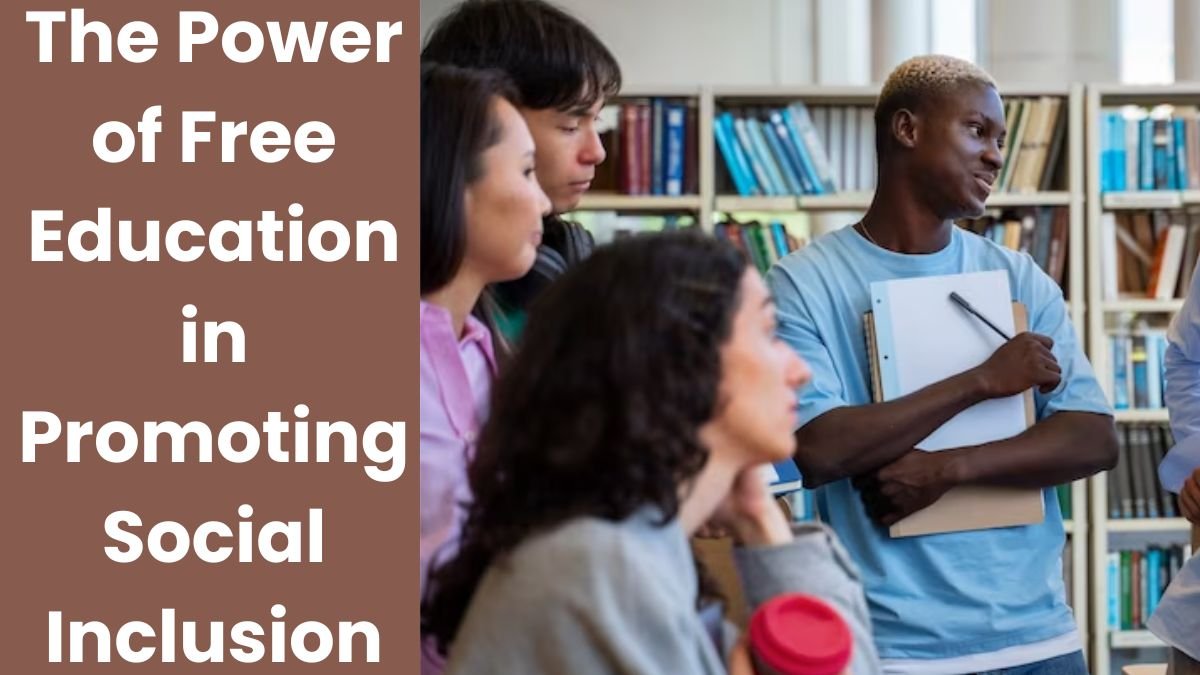Introduction: It is not how high some individuals reach in a specific society but how the most vulnerable are given a chance that becomes the true benchmark of the progress of the society. Free education here is not a mere policy but a social revolution intent on building ground towards equality, inclusions and opportunities in the society.
Nowadays, in the age of the globalization, in which a gap between rich and poor is getting wider every day, free education is itself a solution and a rope that stretches every layer of society and gives them a ground, on which all of them live. This paper is going to describe in details how free education would allow access to social inclusions and a more equal society.
Education: The Key to Social Inclusion
Recognizing education as a right is not only important for individual development but is also the most effective means of eliminating inequality in society. Free and equal education becomes a ray of hope for the deprived, poor, SC/ST, women, and minorities of the society.
Education does not just apply to a specific class and it is a tool that is used to empower socially and economically those who have been left behind in the trail of centuries. Through education they get a feeling that they are confident, have an understanding as well as being socially involved and therefore they stand to be included within the ordinary in the society.
Free education: An anti poverty solution against the poverty cycle
Poverty is an issue in most of the developing countries, and in India, this issue is passed down several generations. However, the poor households will be empowered to escape this cycle of poverty through free education.
When a child from a poor family receives education, he has the possibility of better employment, income, and living standards. This not only changes his life, but his future generations can also rise above poverty. In this way, education is capable of bringing not only individual but also collective change.
Role of education in women empowerment
Free education can bring revolutionary changes in the lives of women and girls. While in many societies even today, the education of girls is not given priority, the free education schemes run by the government give them an opportunity to move forward.
Educated women are not only able to make decisions for themselves but they also make better choices for their family, children, and the society as a whole. This also leads to a decline in social evils like child marriage, domestic violence, and gender inequality.
Mainstreaming physically disabled and minority groups
Social inclusion is complete only when every class, every community, and every individual gets equal status. Free education is a light for the specially abled, LGBTQ+, or religious minorities that makes them self-reliant and accepted in the society.
The inclusive education schemes run by the government aim to ensure that no child is deprived of education just because of their identity or circumstances.
Digital education and its expansion
Digital education has gained a new identity after the Covid-19 pandemic. But with this it also became clear that the digital divide (unavailability of internet/device) is creating a new inequality.
Government and society should work together to ensure that free education is also accessible in digital form — like free internet packs, tablet distribution, and local digital centres. This will also enable students from remote and poor areas to benefit from online education.
The community engagement and education
The models of community-based education like village-based knowledge centres, volunteer-based teaching and local NGO participation are being found to be effective in carrying educational provision to the grass-root level.
Whenever the community itself takes consideration in the education of its children, it does not only enhance the literacy level among the people but also instills the sense of social responsibility and self-esteem among the children.
Environmental awareness and education
There is another invisible but powerful aspect of education — it also makes society environmentally responsible. Tree plantation, cleanliness drives, and environmental workshops in schools sensitise children towards nature.
Therefore education is beneficial in social inclusion and also environmental inclusion that is needed in sustainable development.
The Problems and their Responses
As much as the government has made a number of strides towards ensuring free accessibility of education to everyone at any level in the society.
There are also a lot of obstacles on the ground level:
- Variations in the quality of schools
- Lack of teachers
- Child labour
- Social bias
- To address these challenges, there is a need for:
- Increase in education budget
- Better trained teachers
- Community-teacher partnerships
- Inspiring campaigns that make education a life priority
Conclusion
Free education is not a mere privilege, but a tool for social change. It gives voice to the underprivileged sections of society, empowers women, shows children a future and takes the entire nation in an inclusive, sensitive and just direction.
If we dream of a truly inclusive society, we must embrace free education as a movement, not just a scheme – one that empowers every child to dream and make them come true.
